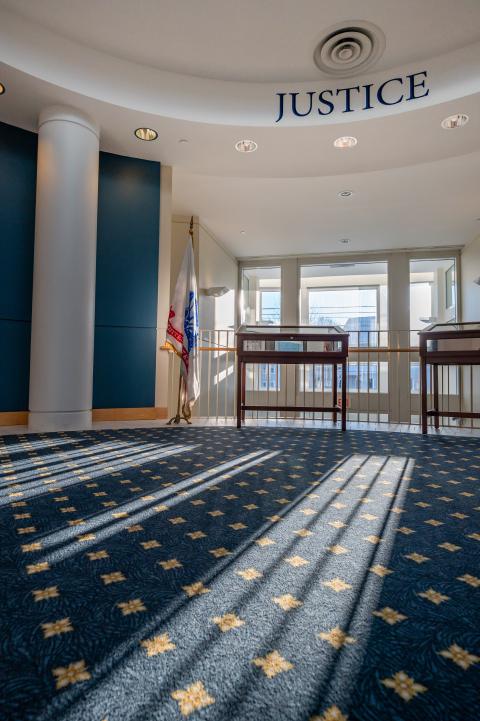Professor John Greabe Supports Repeal of “Divisive-Concepts” Law in Editorial

In an editorial published by the New Hampshire Bulletin on January 20 and the New Hampshire Union Leader on January 25, UNH Franklin Pierce School of Law Professor John Greabe wrote about the controversial “divisive-concepts” law enacted in 2021 by the N.H. State Legislature. Greabe also recently testified in support of the law’s repeal.
“The law,” Greabe wrote, “bars public K-12 teachers from engaging in certain forms of instruction on issues of race, gender, and other forms of discrimination. The Legislature is presently considering bills both to repeal the law and to extend it to the higher education context.”
In his editorial and in additional comments for this blog post, Greabe, who serves as director of the Warren B. Rudman Center for Justice, Leadership, & Public Service, argues in favor of repealing the law. He notes that those who support repeal emphasize the need for “classroom conversations on topics near the periphery of the restraints on speech imposed by the law. . . a law that stealthily seeks to suppress lawful activity — especially core First Amendment activity — is antithetical to freedom.”

The law deters teachers from initiating such discussions for fear of repercussions. In effect, it prevents K-12 educators from engaging their students on many important topics, while also encouraging “the initiation of legal processes by uninjured, ideologically driven complainants.”
“These provisions,” Greabe added, “seek to deter educators from engaging in important and entirely lawful classroom conversations about racism, slavery, sexism, religious bigotry, and other forms of discrimination.”
By way of comparison, Greabe shares an example of the Texas anti-abortion law that infringes constitutionally protected abortion rights but has nonetheless served as an unwritten restriction on women exercising these rights. Legislatures creating obstacles to lawful action is a common theme between the Texas law and the N.H. law.

“The classroom should be a place for honest assessments of our history and free and open conversations about our social problems,” Greabe told UNH Franklin Pierce. “The divisive-concepts law presents a serious obstacle to such assessments and conversations taking place in our state’s public-school classrooms.”
As director of the Warren B. Rudman Center for Justice, Leadership, & Public Service, Greabe regularly weighs in on national and local legal issues. On January 21, he was one of four panelists in a Cheshire Academy of Lifelong Learning virtual presentation on the divisive-concepts law. Other participants included Gilles Bissonnette, legal director of ACLU of New Hampshire; Andres Mejia, N.H. public K-12 district director of diversity, equity, inclusion, and justice, Exeter Regional Cooperative School District; and Tina Kim Philibotte, chief equity officer for the Manchester School District. The panel discussed educator adjustments as a result of the legislation, undesirable effects or influences of the law, and resulting complaints or litigation in New Hampshire.
“The law. . . is vague enough,” Greabe told UNH Law, “that it could be construed to prohibit education and conversations about race, slavery, sexism, and other forms of discrimination that absolutely need to happen if we are to move ahead as a society.”